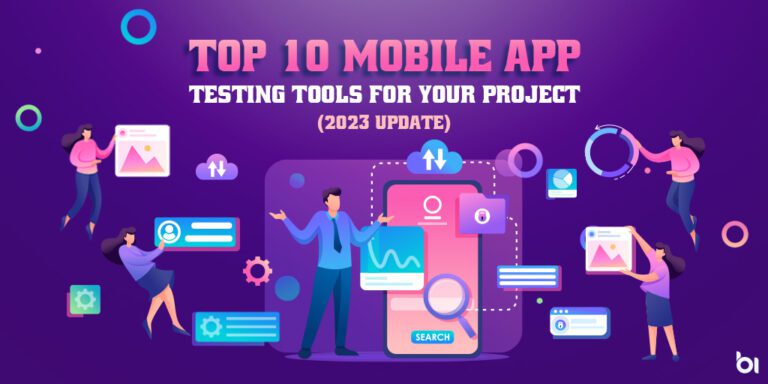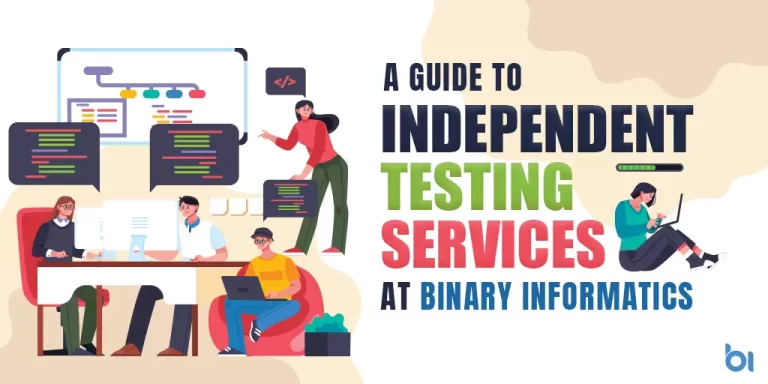But with so many options on the market, it can be hard to know which ones are worth your time and money. That’s why we’ve put together a list of the top 10 mobile app testing tools for your project. Check it out below!
Table of Contents
ToggleThe Basics of Mobile App Testing
Testing your mobile app is essential to guaranteeing a smooth user experience for your customers. But with so many mobile app testing tools out there, it can be tough to know which one is right for your project.
That’s why we’ve put together this list of the top 10 mobile app testing tools for 2019. These tools will help you test everything from app usability to performance and compatibility. So whether you’re a beginner or a pro, there’s sure to be a tool here that’s perfect for your needs.
Types of Mobile App Testing
There are two types of mobile app testing: functional and non-functional.
Functional testing verifies that the app functions as designed and that all features are working as intended. Non-functional testing, on the other hand, covers areas such as performance, reliability and usability.
Both types of testing are important, and it’s best to use a variety of tests and tools to cover all your bases. That’s why we’ve compiled a list of the top 10 mobile app testing tools for you.
Top 10 Mobile App Testing Tools
As a mobile app development company, we’re always on the lookout for new and improved mobile app testing tools. So, we’ve put together a list of our top 10 favourites for you.
This list is updated for 2023, so you can be sure that you’re using the latest and greatest tools available.
#1. UserZoom
UserZoom is great for testing the most intricate details in a mobile app. UserZoom simulates the user’s finger movements, mouse clicks, and keyboard presses so you can truly see what the app will look like when a user is using it on a tablet, laptop, or desktop. This tool is ideal for testing mobile web apps, too.
UserZoom also offers a free trial version.
#2. Apple TestFlight
Apple TestFlight is a great way to promote your mobile app to beta testers. A private app store, TestFlight users download and try new versions of your app without the fear of public shaming or public ridicule.
The only downside? Apple TestFlight is only available for iOS apps.
#3. FlutterBugs
There’s a reason that people are raving about FlutterBugs. It’s because this testing tool will find a vast majority of bugs in any mobile app you create. It allows users to simulate everything from gestures to typing.
FlutterBugs is a paid app, but it’s only about $20 per test. That may be a bit pricey, but it could save you a lot of time.
#4. UsabilityHub
UsabilityHub is a free testing tool that allows you to create your own app and share it with your team. UsabilityHub offers several testing tools, including eye-tracking, form filling, mouse tracking, and others. It’s a great testing tool because you can create your own app and then give your team the link to test.
You can also download a free 30-day trial version of UsabilityHub.
#5. TestRiot
TestRiot is a browser-based mobile app testing tool that supports both Android and iOS. TestRiot can simulate touch, multitouch, gestures, accelerometers, and more. A great part of this testing tool is that it’s browser-based, so it can be used on any device, even a tablet, a smartphone, or a laptop.
TestRiot is a paid tool, but it’s only about $20 per test. That may be a bit pricey, but it could save you a lot of time.
#6. InVision
InVision is a great mobile app testing tool, because it allows you to build, test, and deploy mobile web apps.
InVision offers two app models, in addition to a mobile web app testing service.
There’s an app development service where you’re given a template to use, and you are responsible for designing your app and creating the mock-ups for InVision.
You also have the option to purchase the mobile app and build your own app and create the mockups yourself.
#7. iMockup
iMockup is a great mobile app testing tool. It’s a browser-based tool that allows you to create both graphic mock-ups and wireframe mock-ups.
If you’re interested in seeing how a mobile app will look on a tablet, smartphone, or computer, this is a great tool to try out. iMockup is a free tool, and it’s easy to get started with a 14-day trial.
#8. UserTesting
UserTesting is a great tool for testing the mobile website you’re currently building.
UserTesting offers four mobile app types to test:
a. Basic – A plain white box with a mobile app icon. You’re asked to log in and try it out.
b. Full – A full screen layout. You’re asked to log in and try it out.
c. In-page – A user is on the website they’re testing. You can click “mobile app” to see the layout.
d. In-page-off-site – A user is on the website they’re testing. You can click “mobile app” to see the layout, but there’s no “try it” button.
#9. Mobile App Analyzer
Mobile App Analyzer is a powerful iOS app testing tool. You can run tests on your own device or on a simulator, and you can take your app to any country that Apple has approved to test in.
Mobile App Analyzer is a paid tool, but it’s only about $50 per test. That may be a bit pricey, but it could save you a lot of time.
#10. Quess
Quess is a mobile app testing tool for the entire workflow of your mobile app. It’s browser-based, so you can test on any device.
Quess is a free testing tool, and you can get started with a 30-day trial.
If you’re interested in trying Quess, go to https://q.rs/Quess_try
How to Choose the Right Mobile App Testing Tool
When it comes to choosing the right mobile app testing tool for your project, there are a few things you should consider. This process can be daunting, so we’ve broken it down into a few easy steps.
First, it’s important to determine what type of testing you want to do, whether it’s manual or automated. Manual tests are performed by humans and require a lot of time and effort, whereas automated tests rely on scripts to do the heavy lifting. Decide which type of testing is best for your project.
Second, consider the platforms and devices you want to test. Will you be testing an iOS app? An Android app? Both? Make sure the tool you choose supports the platforms and devices that your product runs on.
Third, think about your budget and timeline. How much time do you have to get this done? What is your budget for testing tools? Knowing these details will help narrow down your list of contenders even further.
Areas to Consider Before Choosing a Mobile App Testing Tool
When selecting a mobile app testing tool for your project, there are few key areas to consider. First and foremost, you should pay attention to the accuracy of the results. For example, does the tool provide detailed reports on errors and performance trends? If so, this can be incredibly helpful in debugging code and suggesting improvements.
Another important factor is functionality. What features does the mobile app testing tool come with? Does it offer cloud integration? Does it have support for real-time analytics? Is there AI involved to help detect potential issues before they become noticeable in production? Having a tool that comes with a suite of features can be extremely beneficial when it comes to reducing the time spent testing and troubleshooting your app.
Finally, don’t forget to look into the cost-effectiveness of any given app testing tool. It’s important to make sure that you’re getting the most bang for your buck in terms of features and price after all, you don’t want to be paying for something that doesn’t do what you need it to do.
Benefits of Using Mobile App Testing Tools
Integrating mobile app testing tools into your development cycle can be incredibly beneficial. Not only do they help you find code bugs and system issues more quickly, but they also make it easier to catch UX problems like text overflow, navigation issues and more.
Apart from improving the quality of your product, using mobile testing tools can also save you a lot of time. Automated testing means that developers don’t have to run tests manually every time they make a small change. This helps to speed up the development process and makes it easier to launch faster and more frequently.
Moreover, these tools are incredibly cost-effective since they don’t require buying different devices or setting up manual test environments. Plus, there are many free and open-source mobile testing tools available that you can use for basic testing needs.
All in all, mobile app testing tools are essential for achieving success in any project.
Conclusion
So, these are our top 10 mobile app testing tools. We hope you find this list helpful and that it aids you in your mobile app testing process. If you have any questions, feel free to reach out to us.




